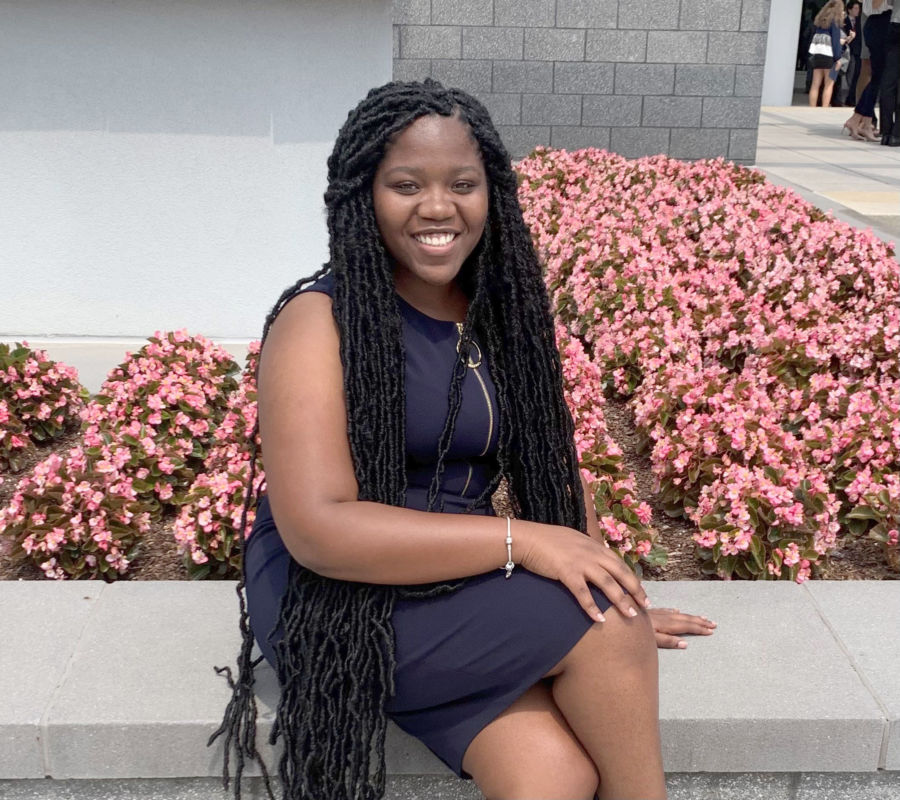The editor-in-chief for The Daily Mississippian has been selected to participate in a New York Times journalism program designed to mentor young journalists.
Rabria Moore was chosen to be part of The New York Times Corp, a talent-pipeline program for college students to receive career guidance from NYT journalists over a multiyear period.

Rabria Moore
Moore was one of 20 young journalists selected from among hundreds of applicants. The students will be paired with a Times adviser, with whom they will meet two or three times a year throughout their undergraduate careers. Those conversations will focus primarily on career-building advice. Moore will also have the opportunity to learn from speakers and other activities.
“In the program, I receive mentorship from a New York Times reporter,” Moore said. “My mentor is Steven Lee Myers. He’s a foreign and national security correspondent, currently based in California (https://www.nytimes.com/by/steven-lee-myers).”
Moore said she was excited to learn she had been selected.
“I applied for this program because I think mentorship is important, and I wanted to specifically have a mentor from a national news organization to help me navigate and break into the journalism industry.”
Moore is pursuing a dual degree in political science and journalism with a news-editorial emphasis while leading The Daily Mississippian staff. She is also a member of the UM chapter of the Association of Black Journalists, one of the Ole Miss Ambassadors and a member of the Columns Society.
“In terms of career goals, I see myself first as a political journalist, covering politics,” she said. “After some experience, I’d like to become an international journalist.”

Andrea Hickerson, Ph.D.
Andrea Hickerson, Ph.D., professor and dean of the UM School of Journalism and New Media, said Moore is a wonderful leader who consistently shows initiative for learning and creating new opportunities for herself and others.
“For example, if it weren’t for Rabria, we wouldn’t be hosting New York Times opinion editor Kathleen Kingsbury,” said Hickerson. “Rabria connected with her and her team at NABJ (the National Association of Black Journalists conference).”
Kingsbury is set to speak at the UM School of Journalism and New Media Thursday, Oct. 13.
“The NYT Corp will give Rabria another opportunity to showcase and build her talents,” Hickerson said. “She will create a large, well-connected professional network that I expect will look out for her in the future.”

Larz Roberts
Larz Roberts, director of the S. Gale Denley Student Media Center, said Moore is sharp.
“It doesn’t take long to realize that she has the potential to go as far as she wants,” he said. “She has the tools to take whatever practical experience and opportunities (are) coming her way and take full advantage. This one is no exception. And this is a huge opportunity to boot.”
Moore hopes to gain more insight into journalism by participating in the NYT program.
“My ultimate goal is to become an international journalist, so I’m really happy to have Myers as my mentor,” Moore said. “I’ve learned a little bit about him and his time as a journalist, and I hope to gain more knowledge about the field from him. The New York Times is also one of my favorite news organizations, so learning from reporters who’ve worked there is definitely something I’m looking forward to.”
The Times Corps is meant specifically for students from underrepresented groups in journalism, such as students of color and/or students from socio-economically disadvantaged backgrounds, according to the NYT website about the program. Access to quality career guidance stands as a critical challenge to many students seeking to be journalists. Applications will open again in spring 2023.
Along with The New York Times Fellowship and The New York Times Editing Residency, the Times Corps seeks to develop a deep and diverse talent pool, both for The Times and journalism at large.
To see the full list of NYT Corps members: https://www.nytco.com/press/introducing-the-inaugural-members-of-the-new-york-times-corps/
LaReeca Rucker wrote this story.


